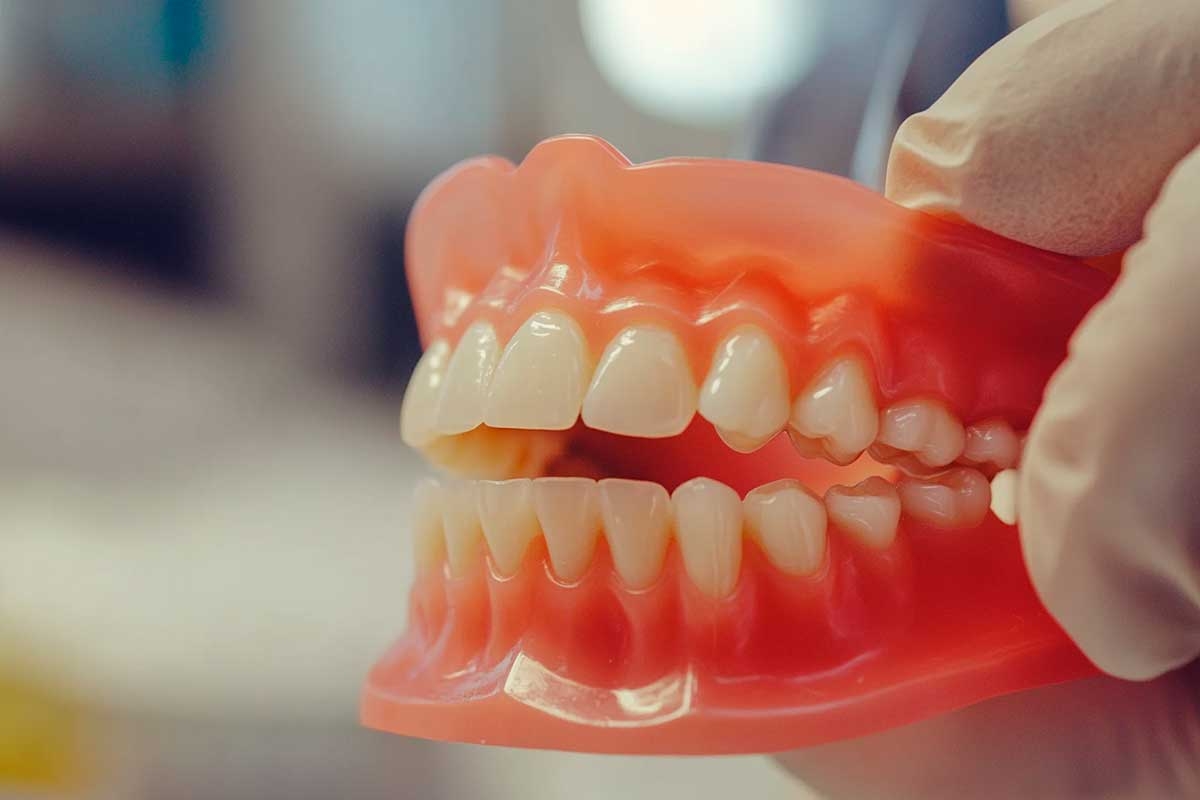
Dental Prosthesis Treatment
Watch our video about Dental Prosthesis Treatment
A dental prosthesis is a device used to replace missing teeth and restore both oral function and aesthetics. These prosthetics can be fixed or removable and are designed to mimic the natural appearance and functionality of real teeth.
Dental prostheses help individuals regain confidence, proper chewing ability, and speech clarity, while also preventing long-term oral health issues caused by missing teeth, such as bone loss and misalignment of remaining teeth.
What Causes the Need for a Dental Prosthesis?
Several factors may lead to tooth loss and the need for a dental prosthesis, including:
- Tooth Decay – Severe cavities that compromise the tooth’s structure.
- Gum Disease (Periodontitis) – Advanced infection that weakens the supporting bone and tissues.
- Dental Trauma – Accidents or injuries that cause tooth loss or irreparable damage.
- Congenital Absence of Teeth – Some individuals are born missing one or more teeth.
- Wear and Tear Over Time – Natural aging can weaken teeth, leading to tooth loss.
- Failed Root Canal Treatment – Infections or complications may require tooth extraction.
- Cancer Treatments – Certain medical conditions or treatments, like radiation therapy, can affect dental health.
Losing teeth can impact chewing, speech, and facial structure, making early treatment essential.
How to Prevent Tooth Loss?
While some causes of tooth loss are unavoidable, many cases can be prevented with proper oral care and lifestyle choices:
- Brushing teeth twice a day with fluoride toothpaste to prevent decay.
- Flossing daily to remove plaque and bacteria between teeth.
- Regular dental check-ups to detect and treat issues early.
- Avoiding tobacco products, which contribute to gum disease and bone loss.
- Wearing mouthguards during sports to prevent dental trauma.
- Maintaining a balanced diet to strengthen teeth and gums.
- Addressing minor dental problems early before they progress into severe conditions.
A proactive approach to oral health significantly reduces the risk of tooth loss and the need for prosthetic treatment.
What Are the Treatments for Dental Prosthesis?
There are multiple prosthetic options available based on the number of missing teeth and individual patient needs:
- Full Dentures – A removable prosthesis replacing all teeth in the upper or lower jaw.
- Partial Dentures – A removable appliance for patients missing some teeth, supported by clasps.
- Fixed Dental Bridges – A permanent prosthesis anchored to adjacent natural teeth.
- Implant-Supported Dentures – Dentures secured with dental implants for increased stability.
- Dental Crowns – Caps placed over damaged or weakened teeth to restore their function.
- Implant-Supported Crowns – Individual artificial teeth attached to dental implants.
- Overdentures – A hybrid between dentures and implants, offering better support and comfort.
Each treatment is customized to restore functionality, comfort, and aesthetics, improving the patient’s quality of life.
Advantages of Treating Tooth Loss with a Dental Prosthesis
A properly fitted dental prosthesis provides numerous benefits, including:
- Restored Chewing Ability – Allows for normal eating without restrictions.
- Improved Speech – Prevents slurring or difficulties in pronunciation.
- Enhanced Aesthetic Appearance – Gives a natural-looking smile.
- Prevention of Bone Loss – Helps maintain jawbone density.
- Better Oral Health – Prevents shifting of remaining teeth.
- Increased Self-Confidence – Reduces self-consciousness about missing teeth.
- Long-Term Durability – Modern prosthetics are designed to last for years with proper care.
Dental prostheses improve both physical health and emotional well-being.
How Long Does the Treatment Last?
The duration of dental prosthesis treatment depends on the type of prosthetic solution chosen:
- Dentures require several weeks for fabrication and adjustment.
- Fixed bridges and crowns take a few weeks, depending on lab processing.
- Dental implants require several months, as the implant must integrate with the jawbone.
With proper care and regular dental visits, prostheses can last many years, providing long-term benefits.
Who Should Consider a Dental Prosthesis?
Dental prostheses are recommended for individuals who:
- Have lost one or more teeth due to decay, trauma, or disease.
- Have difficulty chewing food properly due to missing teeth.
- Experience speech issues related to tooth loss.
- Want to restore facial structure and avoid sagging due to missing teeth.
- Are looking for a permanent solution for missing teeth, such as implants.
- Have worn-out, damaged, or non-functional old dentures.
- Wish to improve their overall quality of life with a complete smile.
Consulting with a prosthetic specialist ensures the best treatment plan for each patient’s needs.
Alternatives for Those Who Cannot Undergo Prosthetic Treatment
For individuals unable to receive traditional prostheses, alternative options include:
- Dental bonding to restore minor gaps or damages.
- Removable oral appliances to provide temporary functionality.
- Orthodontic treatments to realign existing teeth.
- Bone grafting procedures to prepare for future dental implants.
- Soft diet modifications to minimize chewing difficulties.
A dental consultation can help determine the most suitable approach for individual cases.
Schedule Your Dental Prosthesis Consultation at Clinic Consultation
At Clinic Consultation, we provide customized dental prosthetic solutions to restore your smile and oral function. Our specialists offer personalized care, high-quality materials, and advanced dental techniques for optimal results.
📅 Book your appointment today and regain your confidence with a natural, fully functional smile at Clinic Consultation!
Click here to schedule an appointment online